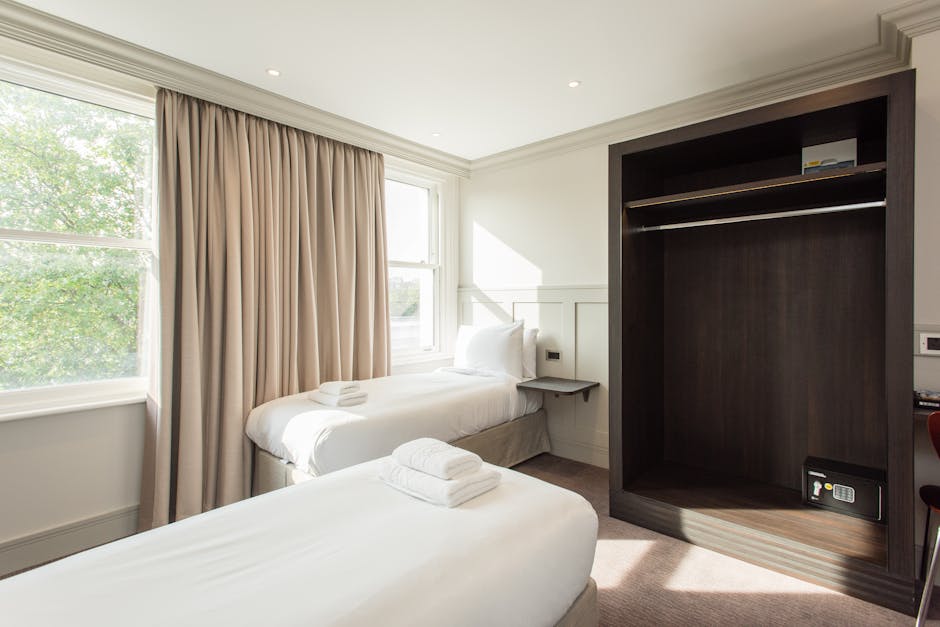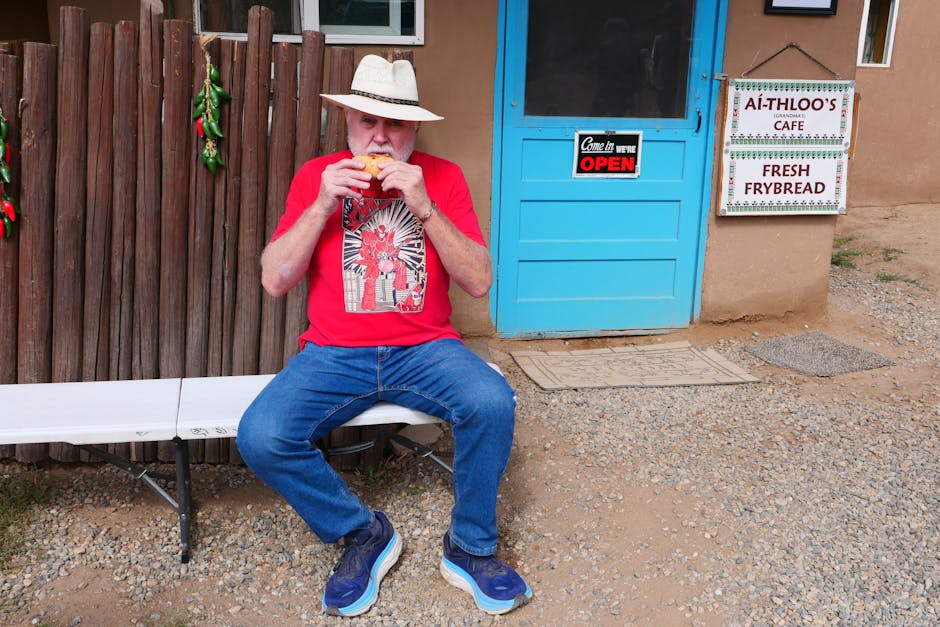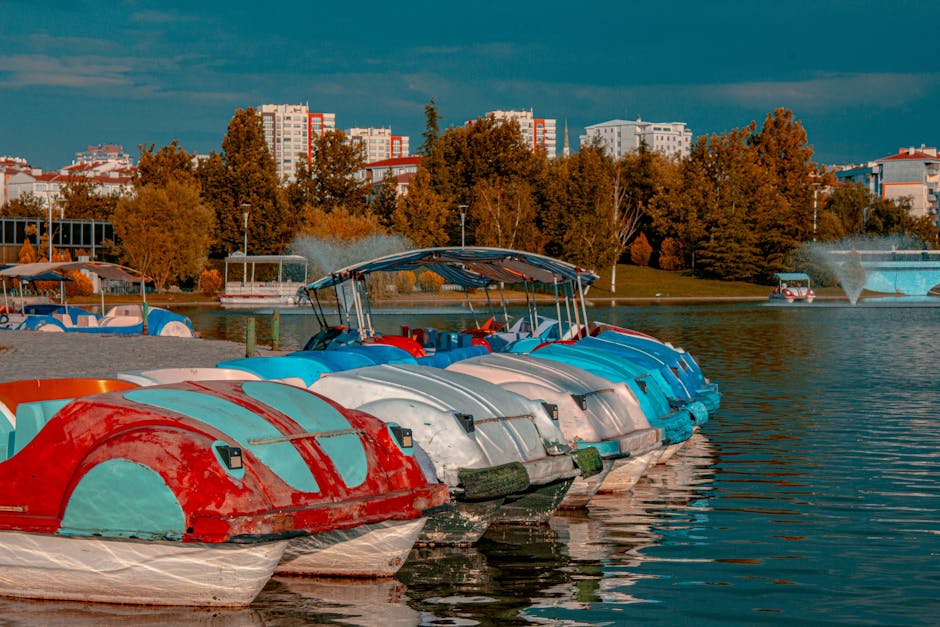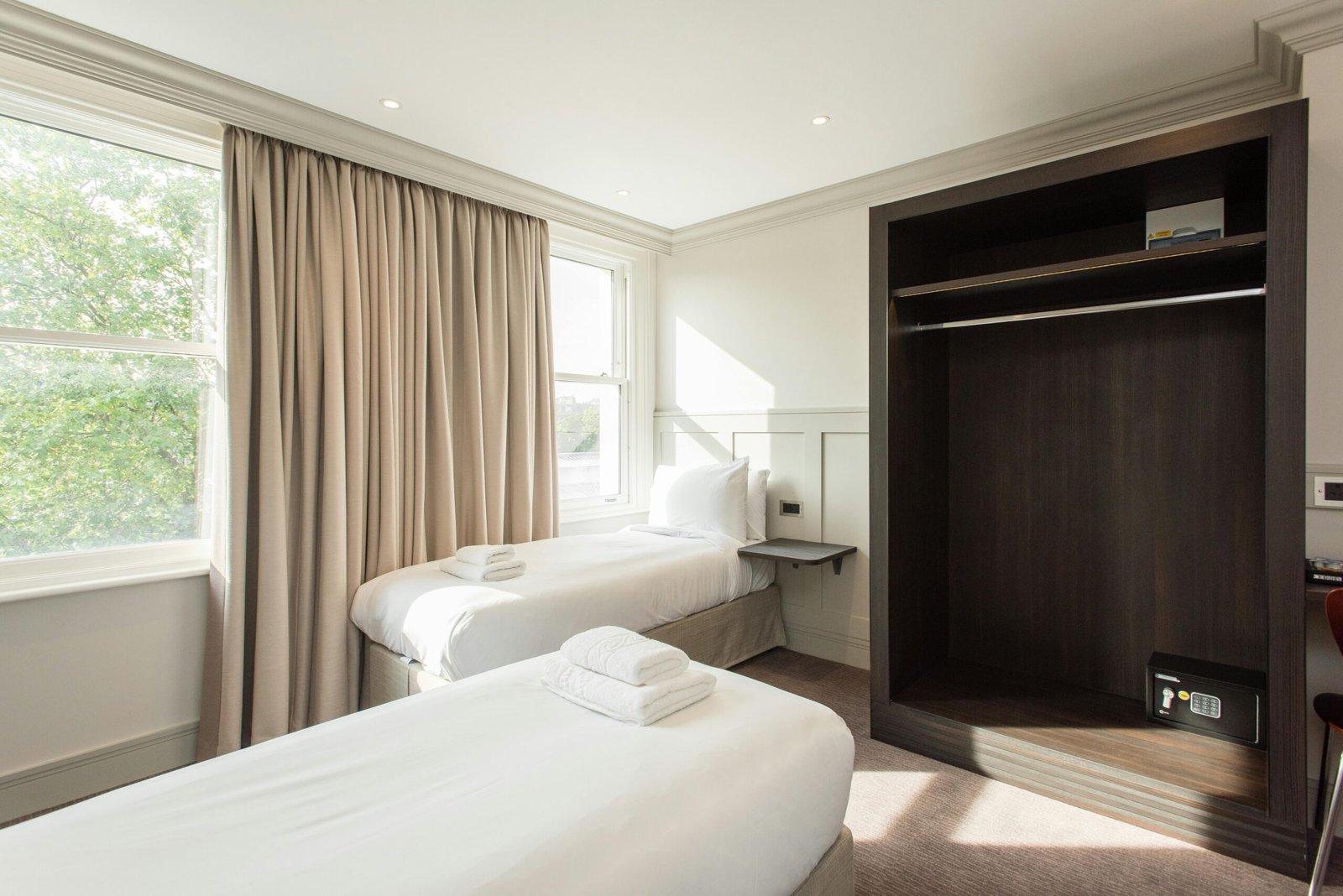Introduction
At some point, we’ve all been punched by the allure of far-off destinations. The dreams of exotic lands, tranquil beaches, rustic villages, and dramatic landscapes are not uncommon. But, money – or the lack of it – often eclipses these dreams with a stark shadow of reality. However, this is the age of budget travel and it’s disrupting the traditional narratives of tourism, giving us hope and an itchy foot.
In essence, budget travel is about real adventures ideally suited to your wallet. It’s about relinquishing luxury for immersive experiences, about prioritizing exploration rather than consumption, and about indulging in the genuine charm that money seldom buys. Sounds inviting, right? More so given the economic turbulence many are navigating nowadays. That’s why budget travel has become more significant, almost a necessity, in our current era.
This guide is not just about outlining an abstract concept, though. Oh, no. It’s about getting real, getting practical. Packed in these pages are tips—tangible, actionable advice—that ensures a good bang for your buck when it comes to traveling. The aim here is to help you see new horizons without stretching your pockets, to help you look past extravagant splurges and embrace the intensity of cultural adventures. In short, to make budget travel less of a foreign concept, and into something more… well, traveled. So, fasten your seatbelts, travelers. We’re about to take off.

Understanding Budget Travel
Budget travel, often familiar to seasoned jetsetters, is a concept that goes much deeper than what is commonly understood. This form of travel requires skillful planning and creativity to explore the world in a cost-effective manner without compromising the quality of the experience.
The Definition of Budget Travel
At its core, budget travel is the art of experiencing the world in a way that aligns with your economic capacity, yet still captures the richness of the experience. It is not limited to dollar-store extravagance or sleeping in a random stranger’s basement.
Misconceptions About Budget Travel
Budget travel is often misconstrued amongst travelers. A common fallacy is the assumed discomfort and limited options it presents. This misconception suggests that budget travel destinations are linked only to low-quality accommodations, questionable street food, and bare-bones itineraries. While budget travel does require financial prudence, it certainly doesn’t equate to an uncomfortable or extremely limited travel experience.
The Potential and Freedom of Budget Travel
Rather than viewing budget travel as a limiting factor, picture it as a freeing paradigm. It empowers travelers to think outside the box, take exciting detours, and embark on trips not possible with preset, costly agendas. The true beauty of budget travel lies in venturing off-the-beaten paths, immersing oneself in local cultures, and finding joy in simple yet intense experiences that often don’t come with a price tag.
The Essence of Budget Travel
Understanding budget travel requires moving away from negative stereotypes and celebrating the adventure. It’s about challenging the notion that an expensive journey equates to a worthwhile travel experience. With appropriate planning and an adventurous spirit, budget travel can open doors to a world of unique experiences that enrich a traveler far more than luxurious journeys often would.
Conclusion: The Liberating Nature of Budget Travel
In conclusion, budget travel is more about liberation rather than deprivation. It is a way to explore the world devoid of financial strain, filled with extraordinary encounters, aligning with the saying: “Travel is the only thing you buy that makes you richer.”

Planning Your Budget Travel
The ancient Greek philosopher Seneca once wisely pontificated, “If one does not know to which port one is sailing, no wind is favorable.” In this same light, planning your budget travel is a step we can’t stress enough. Just embarking on your dream journey without a well-defined map of expenses, destinations, and alternatives could turn that dream journey into a bit of a nightmare.
First things first, understand that your destination choices matter – quite a bit. For instance, a week’s vacation in Southeast Asia might cost you the same as a weekend in a European city. On that note, research is key. Aim to know at least the basics about the cost of living, accommodation rates, and local transportation prices in your preferred destination before setting foot there.
Equally paramount is considering off-peak travel times. Sure, visiting Spain’s idyllic beaches in August sounds tantalising, but do you really want to hustle with the horde of other tourists and pay peak-season rates? March in Spain still has lovely weather and fewer tourists, making sightseeing a lot more affordable and enjoyable. Remember: Travel is not just about places; it’s also about timing.
Another essential facet of your planning should be a well-detailed daily budget, including food, accommodation, sightseeing, souvenirs, and miscellaneous costs. Having a ballpark figure helps avoid unnecessary expenses and gives you a reality check on whether you’re spending within your means.
Make a note here, friends: spontaneity is enchanting, but when it comes to budget travel, an organized plan can save you from many unwanted surprises. As the saying goes: “Fail to plan, plan to fail.” In your budget travel journey, let’s aim to avoid that failure and instead savor the sweet success of well-budgeted, well-executed travel.

Finding Affordable Travel Packages
To truly make the most of a budget travel experience, navigating the maze of travel packages available becomes a necessity. It’s not rocket science, but it’s not a walk in the park either. So, where do you start? Here are a few pointers.
As a starting point, online travel agencies (OTAs) like Expedia, Priceline and Orbitz become your go-to buddies. They serve as one-stop shops that allow you to compare and bundle flights, hotels, and car rentals, often offering discounted rates for package bookings.
What about the drawback? Well, these packages may be rigid with less room for flexibility. Let’s hypothesize: if you stumble upon a charming hidden cabin that wasn’t in your original itinerary or find a quaint local festival you’d not planned for, altering your premade package might be tricky, or worse, costly. You might want to double check the fine print for any hidden cancellation or change fees.
Next in line, we have tour operators. Pretty old school, eh? But sometimes, they do have their advantages, especially for less navigable destinations or for stress-free holidaying. With these packages, you can swerve past the hassle of planning every tiny detail.
However, analyze the package carefully. Ensure you’re not paying for services or attractions that don’t pique your interest. For example, if you’re an avid hiker, you probably won’t need an ‘extra charge’ guided city tour. That doesn’t sound like you, does it?
Lastly, direct booking packages from airlines and hotels can occasionally offer money saving bundles. Major airlines often have vacation programs, offering flights and hotel stays. But remember to compare these with the rates on OTAs and independent booking sites before hitting the ‘book now’ button.
In summary, affordable travel packages can be found in various shapes and sizes. They offer an array of benefits from convenience to savings, but don’t forget to remain cautious of restrictions and unnecessary inclusions. It’s important that you match what’s on offer with what you truly need, therefore enabling you to make the most out of your budget travel experience.

Saving Money on Flights: A Comprehensive Guide
Saving money on flights is a fantastic strategy for maintaining your travel budget. However, it’s not just about grabbing the first low-cost carrier offer; it involves careful planning and research. Here’s your comprehensive guide to saving on flights.
When to Book Flights
One general rule is to book early…but not too early. According to travel experts:
– For domestic flights, the optimal booking time is typically 2-3 months before the travel date.
– For international flights, you should book slightly earlier.
These are not hard and fast rules and prices can fluctuate, so monitoring prices regularly is highly recommended.
Newsletter Signups and Mid-Week Flights
Those companies you unfollowed because they cluttered your inbox? Some of them might have been airlines offering exclusive deals to their subscribers. Signing up for newsletters from various airlines can be a treasure trove for finding the best deals.
Besides, mid-week flights, especially on Tuesdays or Wednesdays, are usually less expensive than on weekends.
Airline Loyalty Programs
If you’re not part of an airline loyalty program yet, you might be missing out. These programs often offer:
- Discounted or even free flights for frequent customers.
- Additional perks like priority boarding, extra baggage allowance, and access to airport lounges.
Fare Comparison Websites
No guide to saving on flights would be complete without mentioning fare comparison websites. Platforms like Expedia, Skyscanner, and Google Flights compare fares from multiple airlines, highlighting the most affordable options. These sites often allow you to choose flexible dates, showing prices across an entire month and enabling you to spot the cheapest days to fly.
In the pursuit of budget travel, remember – “Every flight begins with a single click.” Happy flight hunting!

Affordable Accommodations
Finding a place to stay is one of the most critical aspects of travel planning and can be one of the biggest drains on your budget. However, mind you, budget-friendly doesn’t always have to equate to uncomfortable or undesirable stays. There’s a whole universe beyond costly hotels that aren’t just economical but can also provide an essence of the true local lifestyle.
Hostels, for instance, are an excellent option for those looking to cut down on accommodation expenses. Typically bunk-bed style with shared bathrooms, hostels slap on an opportunity to engage and connect with fellow travellers. Some even offer communal kitchens, where you can prepare your meals, further feathering your budget.
Shared accommodations or vacation rentals such as Airbnb, are yet another ace choice for budget travellers. With options ranging from a single room to an entire apartment, these let you experience the local way of life in a unique homely setting. Many such accommodations offer kitchen access, allowing you to sideline expensive restaurant meals, again pushing you a notch up on savings.
If adventure is your ballgame, you can try camping at local campgrounds or glamping sites. It not only saves money but nestles you right into the lap of nature, lending an authentic raw travel feel.
However, it’s crucial to understand the trade-offs; like sharing space with strangers in a hostel or missing out on room service when opting for vacation rentals. Despite such points, these options can provide a balance between affordability and comfort, buffering your exploration spree with a comforting sleep and save more bucks for the real experiences. Adventure isn’t draped in costly sheets after all!

Eating on a Budget
When it comes to managing your budget amid traveling, a significant amount of your expenditure can surprisingly, yet understandably, be attributed to food. However, with little tweaks here and there, you can save substantially and still guarantee a fulfilling culinary experience.
One of the prevalent methods to save money on food when traveling falls on the concept of DIY – cooking for oneself. Look for accommodations that provide kitchen facilities. Buying groceries and preparing your dishes not only reduces costs but also allows you to experiment with local produce and recipes, adding an extra layer of understanding to your cultural immersion.
That being said, do not shy away from exploring the local markets either. These vibrant hubs are often the heartbeats of the residing cuisine, offering a range of local and fresh produce for a fraction of restaurant prices. Food markets also provide you with an opportunity to taste a variety of authentic street food, which usually comes cheap and flavoursome.
And speaking of restaurants, remember that fancier doesn’t always mean better. Often, the most delicious meals are found in small, family-run establishments where locals eat. Avoid tourist traps where prices are often inflated and explore off-the-beaten-path eateries.
Moreover, embracing local cuisine can be a cost-effective and enlightening part of your travel journey. Imported western foods are often more expensive than local dishes. So, why not let your taste buds take a wild adventure and dive deep into the authentic tastes that each destination has to offer?
Lastly, don’t underestimate the value of a good old packed picnic. Pick up some local bread, cheese, fruits, and make your way to a local park. It’s an affordable way to eat and an opportunity to enjoy relaxing scenery.
Navigating your way around a travel budget can be tricky, but it shouldn’t rob you of savoring the delights of local cuisine. With these tips, you can excitingly manage your food expenses without compromising the quality and exciting thrill of your travel dining experience.

Affordable Sightseeing and Activities
Travel experiences should not always come with an exorbitant price tag. Some of the most memorable moments often cost almost nothing. The allure of budget travel lies within these pockets of affordability interspersed throughout the world’s expensive cities and destinations.
Free Walking Tours
Many cities offer free walking tours rich in local history and culture. These provide greater depth than merely reading a guidebook. While many operate on a “pay-what-you-can” basis, they often come at a fraction of traditional tourist tours’ cost.
Museums
Museums often have designated free-entrance days or hours. In some cities, they offer free entry, surviving via donations instead of a steep admission fee. It’s worth checking online ahead of your visit for these opportunities.
Nature’s Bounty
Beaches, mountains, parks, and hiking trails almost always come free of charge. These locations provide opportunities for relaxation, exploration, and physical activity without burdening your wallet.
Local Community Events
Consider participating in local community events. Farmers markets, neighborhood festivals, open-air concerts, or other local happenings are typically inexpensive and offer a unique insight into the local culture.
Prioritize Experiences Over Expenditures
While it might be tempting to spring for an expensive tourist trap, remind yourself what budget travel is really about. It is about engaging with the culture and environment around you, without fiscal considerations distracting from the experience.
Budget travel involves making the most of what’s available. This includes taking advantage of affordable or free sightseeing and activity options. So, step off the beaten path, immerse yourself in local culture, and discover the unexplored, without burdening your wallet.

Budget Travel and Local Transportation
One aspect of budget travel that often doesn’t get the attention it deserves is local transportation. You’d be surprised how much your travel budget can stretch when you’re savvy about how you get around.
Let’s start with a truth: Taxis are convenient, but they’re often the most expensive way to travel within a city. Many countries offer excellent public transportation options like busses, trams, subways, and trains that are far more wallet-friendly. Plus, they offer the added bonus of a local experience.
Take the Japanese rail system, for instance. Not only is the network impressively extensive, but the trains also run like clockwork. Or consider the colourful, buzzing local buses in India, dubbed as ‘moving bazaars’. These are not just transport options, but experiences in themselves that put you shoulder-to-shoulder with locals and provide you a slice of their everyday life.
Many cities also offer travel cards allowing unlimited travel within a specified period – a smart, cost-effective alternative if you plan on moving around a lot. Then, there’s bike sharing or carpooling, growing trends across many European cities that are not only affordable but eco-friendly too.
Rideshare apps like Uber and Lyft often provide mid-range options between taxis and public transport in terms of costs. But remember, prices can surge during peak hours. Also, check if they operate in your destination before you depend on them entirely.
Then there are destinations where the best mode of transport is your own two feet. An example? Historic cities like Rome or Florence, with compact city centre largely closed to traffic, are perfect for meandering on foot.
In short, local transport can be about more than just saving money. It’s about immersing yourself in the culture, interacting with locals, and soaking up a city’s rhythm and mood. Now, that adds a priceless dimension to your travel tales. Plus, who wouldn’t love the extra bucks saved? Use them wisely, and you’ll get to say yes to more adventures on your trip!

Common Mistakes in Budget Travel
Despite your best efforts and intentions, budget travel can easily morph into a pricey misadventure if you’re not wary. As the saying goes, it’s not only about making money but also about knowing how to keep it. So let’s delve into some common missteps that could inflate your travel costs, along with some savvy problem-solvers to avoid these pitfalls.
First off, not researching your destination thoroughly can cost you. Heading to your travel destination and ‘figuring it out as you go’ often leads to unexpected and avoidable expenses. Make Google your best pal, look up the cost of living, public transport fares, average costs for meals – the whole nine yards. More knowledge never hurt anyone!
Moving on, buying souvenirs for every aunt, uncle and third cousin twice removed could drain your wallet faster than an Olympic swimmer. Try to resist the souvenir shops, instead, consider digital photos or postcards as mementoes, they’re not only cheaper but also easier to preserve.
Additionally, many budget travelers fall into the ‘eating out’ trap. It can be tempting to try every local delicacy every single day, but dining out all the time will quickly add up. To save on food costs, consider grocery shopping and preparing some meals yourself – this often leads to fun culinary adventures of its own.
Skipping travel insurance is another big mistake. Many budget travelers consider travel insurance as an unnecessary expense. However, it’s like an umbrella, you may not need it every day, but when it rains, you’ll be glad you have it.
Lastly, using your regular cell phone plan could lead to horrifying roaming charges. Instead, consider a local SIM card or stick to Wi-Fi zones – there are GPS and translation apps that work offline too.
Avoiding these common mistakes can ensure your travels don’t take a hard hit on your bank account unnecessarily. So, pack these tips along with your essentials and embark on your economical exploration without a worry.

Conclusion
Traveling the world doesn’t have to break the bank. In this guide, we’ve navigated the maze of budget travel, debunking some common misconacies, shedding light on ways to cut costs without cutting corners, and emphasizing the freeing potential of exploring corners of the globe on lean means.
The adventure of budget travel comes from the creativity and cleverness it encourages, prompting you to go off the beaten path or find lesser-known gems. It doesn’t necessarily symbolize limited comfort or lower enjoyment; instead, it opens the door to authentic and exciting experiences through its unique twists and turns.
Budget travel is nothing short of an art form, requiring planning, flexibility, and an open mind. The value drawn from it isn’t just financial but rather experiential. We traversed strategies to zeet on flights and accommodations, ways to savour local flavours without incurring hefty bills, and how to immerse in local culture and sightseeing without spending a small fortune. We touched on leveraging local transportation to enrich your journey and introduced some potential pitfalls to be aware of.
And so, we wrap up our journey here, but yours might just be getting started. We encourage you to test out these tips and create your own stories of budget packing, hostel-hopping, or astute airfare deals. Remember, the objective is not just to save money, but to maximize experiences, create connections and memories that aren’t sold on fancy travel brochures.
We hope you’re leaving with a fresh perspective on what affordable travel can truly mean – the exhilarating joy of stepping into a bustling local market, the thrill of navigating a foreign public transit system, the humbling experience of sharing a dorm with strangers turned friends, and most significantly, the satisfaction of having found a way to make the world your oyster, irrespective of your budget.
Remember, the world is wide, and your wallet does not need to be. So, pack your bags, lace up your boots, and step into adventures that are all the more rewarding because they are budget-wise and world-wise, combined. Happy budget travels!
